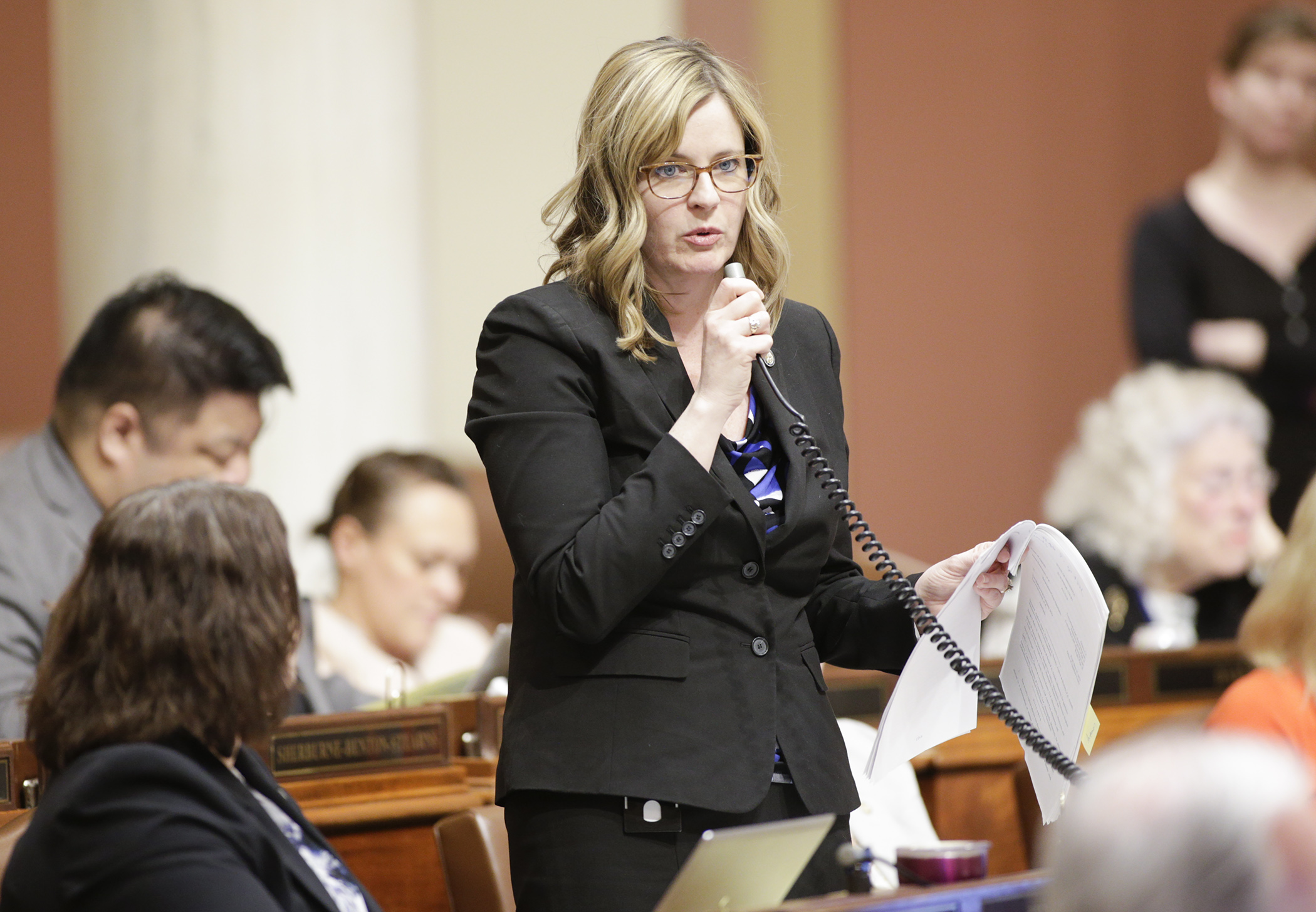House passes bill that would change legal definition of sexual harassment

The definition of sexual harassment in Minnesota law could be changed to clarify that sexually offensive behavior need not be “severe or pervasive” in order for it to be subject to litigation.
That legal standard, currently being used by Minnesota courts, has made it extremely difficult for those who have experienced sexual harassment to seek justice and accountability in the courts, said Rep. Kelly Moller (DFL-Shoreview). “This bill is necessary to ensure that workers are safe in their workplaces.”
She sponsors HF10, which, as amended, was passed 113-10 by the House Thursday. It now goes to the Senate where Sen. Kari Dziedzic (DFL-Mpls) is the sponsor.
Moller recounted the experience of Ami, who testified for the bill before a House division in February.
Ami was a server at a Twin Cities restaurant who was sexually harassed for more than year while working there while she attended law school, Moller said.
The harassment occurred weekly and included repeated unwanted touching by two male customers, repeated sexually suggestive language and a confrontation in the restaurant’s parking lot that she feared would become an abduction.
Ami said her managers did nothing to protect her from the abusers, and insisted she continue to serve the men.
When she went to court, her case was summarily dismissed because the judge determined the men’s behavior did not meet the “severe or pervasive” legal standard.
“Severe or pervasive is such a high bar that things like unwanted kissing, unwanted touching, requesting oral sex, and comparing female employees’ breasts are not considered severe or pervasive in our state,” Moller said.
Those examples came from recent court cases in the state, Moller said. And all of them were also dismissed, with summary judgments given to the employers.
“Victims were denied justice,” Moller said.
Rep. Linda Runbeck (R-Circle Pines) expressed concern that the change in definition would unfairly punish employers who were told of sexual harassment in their workplace and who took good faith steps to stop it. The bill would give too much legal latitude to accusers at the expense of employers, she said.
“The pendulum has perhaps swung too far,” she said.
Moller disagreed, and said case law as it has developed in Minnesota indicates that an employer “who makes a reasonable response to a claim of sexual harassment is not liable. … Employers really can control their destiny here.”
Related Articles
Search Session Daily
Advanced Search OptionsPriority Dailies
Ways and Means Committee OKs proposed $512 million supplemental budget on party-line vote
By Mike Cook Meeting more needs or fiscal irresponsibility is one way to sum up the differences among the two parties on a supplemental spending package a year after a $72 billion state budg...
Meeting more needs or fiscal irresponsibility is one way to sum up the differences among the two parties on a supplemental spending package a year after a $72 billion state budg...
Minnesota’s projected budget surplus balloons to $3.7 billion, but fiscal pressure still looms
By Rob Hubbard Just as Minnesota has experienced a warmer winter than usual, so has the state’s budget outlook warmed over the past few months.
On Thursday, Minnesota Management and Budget...
Just as Minnesota has experienced a warmer winter than usual, so has the state’s budget outlook warmed over the past few months.
On Thursday, Minnesota Management and Budget...